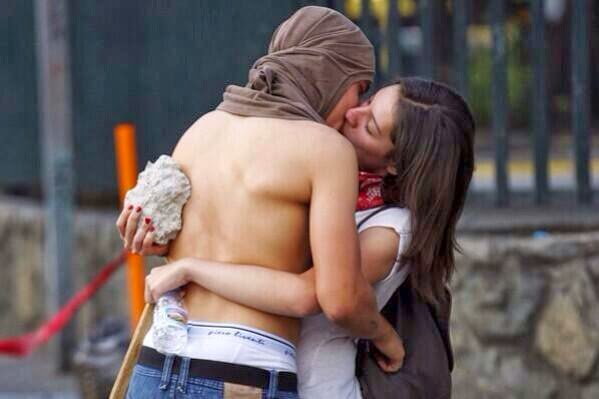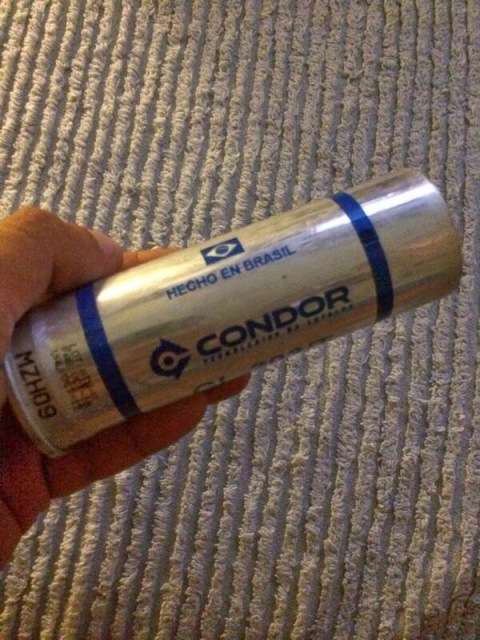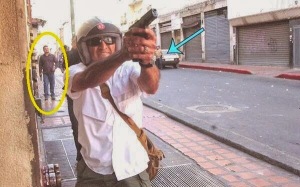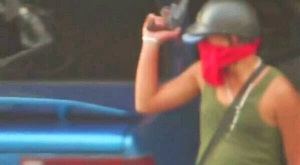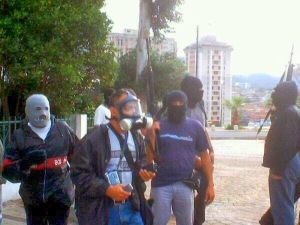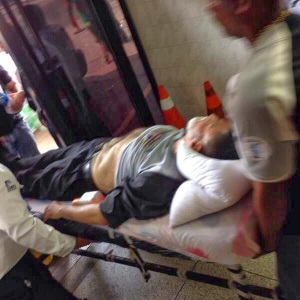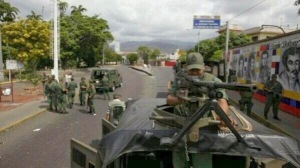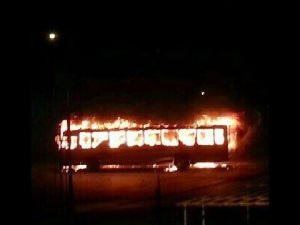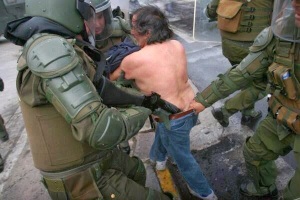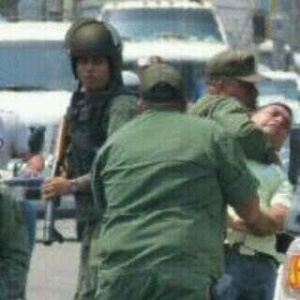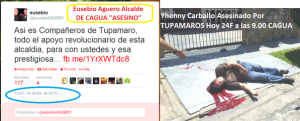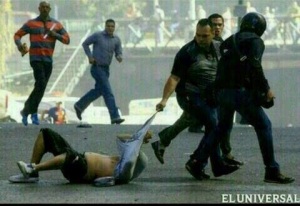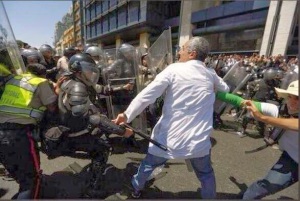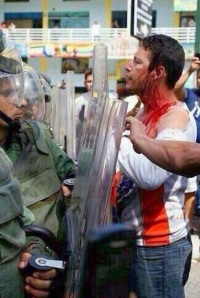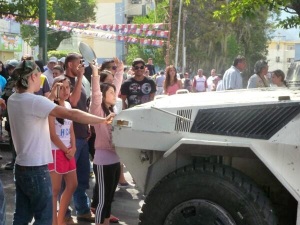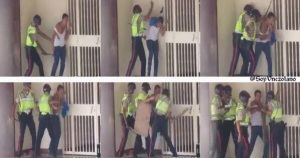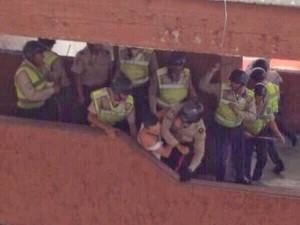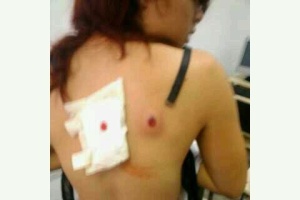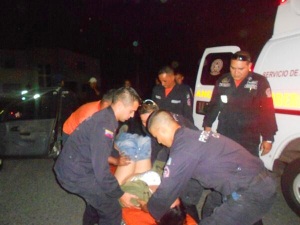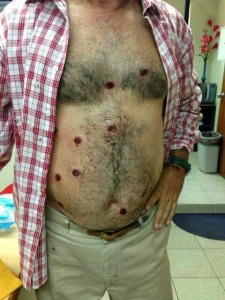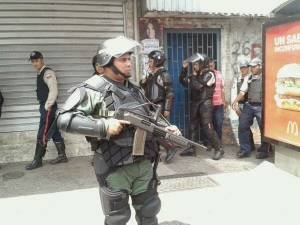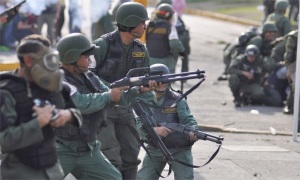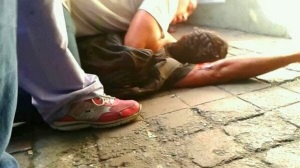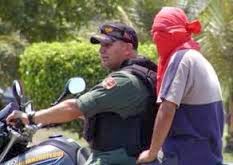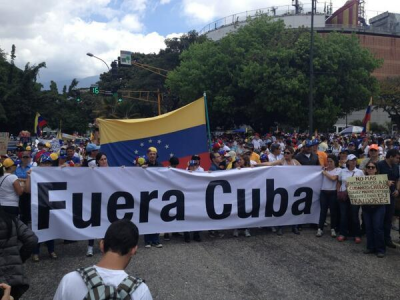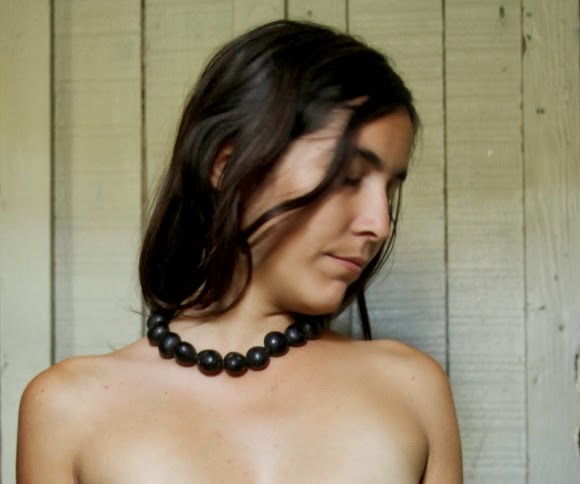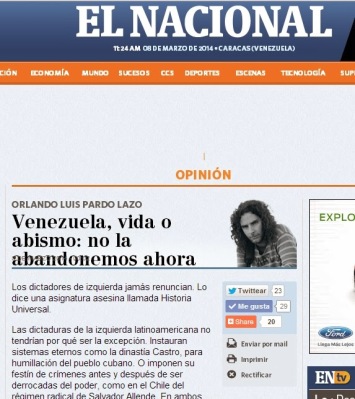
Down K Street
My father had died, the good Armenak (1918-1998).
They laid him out at the funeral home at Calzada and K Street, not far from the municipal maternity hospital: the América Arias hospital.
Chapel K: it was my mother who chose the letter. It reminded her of her homeland, Armenia, which in native Armenian is actually spelled Armenika. It reminded her of my own father, the recently turned-into-cadaver Armenak. It reminded her of herself; a sudden widow named Takuji. In both cases, Saroyan.
My parents were cousins before being lovers. The Saroyan family excommunicated them: they did not tolerate such liberties within their clan. But they insisted.
Later, it was the occupied Armenika who excommunicated them: they didn’t tolerate liberties either within their false frontiers imposed by the Russians, the Turks and the Iranians. They insisted.
They crossed the continent and the ocean in one thousand and two layovers, until their ship wrecked by chance in another little homeland called Havana, bringing along with them Armenika as a stowaway, folded one thousand and two times along with the worthless currency in their pockets.
They insisted. But this time death at last excommunicated these two cousin-lovers from their so insistent passion for freedom.
At the most luxurious and lonely funeral home in Vedado, Havana, Cuba, my mother Takuji warned me:
Do not cry for your father, the good Armenak – she said. Cry for me, for not knowing how to die with him. Cry for you, for the shame that your parents have brought upon you; first, without a homeland, and now, without a family.
My mother Takuji pronounced it all in Armenian smooth and fragile, like her, a language that could not be any more dead even if no one in the world remembered it. It is the language of forgetfulness and of frustration as home: the same in the homeland as in the family, we no longer knew anything of our fate, uprooted with a country but without a destiny.
My mother Takuji continued:
-Vilniak- after centuries, she would pronounce my name in Armenian again – do not let your children get attached to their homeland, alright?
-Yes, mother- I replied.
-Vilniak- Takuji insisted- do not let your children love too much any son of the homeland, alright?
-Yes, mother – I replied.
-Vilniak -holding the weight of my head in her hands, as if she still did not give me any credit at all- do not allow your children to listen to you too much. Do not let them listen either to you nor to any of your mother’s words that will remain within you, alright?
-Yes, mother- I replied.
It was all uttered at midnight in her smooth and fragile Armenian, just like her weightless hands, just like Takuji all of my mother, just like the flaccidity of the dead man who was lying in the coffin, still, with his arrogant black tie made out of cotton from the homeland, dead, and yet actively listening to the two of us, as usual, unable to interrupt even our silence: Armenak or, as I hadn’t called him in ages, Papazik Saroyan.
At that time, my mother and I were Chapel K’s sole inhabitants, on the highest floor of Calzada and K street. In Vedado, 1998: Midnight.
It had also been centuries since the old Armenak died, just like the young Armenak. His terror of death made him play the role of a dying man for himself, even though he had always acted as a vital man in front of the others. So he exorcised his panic. So, and with the talking companionship of a sudden widow named Takuji.
My mother asked me to turn off the lights in the chapel. I went up to the light switch and jiggled it. Nothing happened. The lamp was set up to be permanently on.
With the help of a nail file, I was able to remove the only remaining screw in the breaker. I pulled the wires and they snapped easily. The light disappeared, or maybe it slipped away through the broken windows of the glamorous room.
I returned to my mother and the ceremonial candle, blended with the beeswax of our garden’s eternal beehive, it was flaming: Takuji had lit it.
-Vilniak- she had forgotten all the languages of the world and now she only counted on the Armenian: her native language, on Lake Van, 1921- no one ever dies his own definitive death. It will now be necessary to detach father from every single object, from every single space, and from every single memory, understand?
-Yes, mother- I replied.
-Vilniak-Takuji insisted- you know that no man is good as long as he doesn’t hear his name on the lips of a woman. And you know that every man ends up creating out of nothing she who will be his wife. You know it, and still, you resist. You do understand that this happens when you don’t love reality too much, right?
-Yes, mother- I replied
-Vilniak- holding with her hands the lack of weight of her own head, as if she still didn’t give herself any credit at all – why is it that we no longer speak Armenian?
She was right. We never spoke in Armenian anymore.
No, she was not right. We no longer spoke.
I raised my eyebrows. Stayed silent. I winced just to smile.
I closed my eyes. I bent over her chair and felt her breath. It was smooth and fragile, perhaps weary. Like smoked beech bark. In that precise instant I was woken by a shriek.
From the door of Chapel K, a certain functionary K was having a temper tantrum. He was shouting insults at us without restraint, pointing the rusty index finger of his left hand at us. How the hell had we turned off the light…? That was strictly prohibited by the administration. We were irresponsible, transgressors, almost to the point of deserving to be excommunicated by the funeral parlor: the sad old congenital old story of all Armenians.
Mr. K brought other Mr. K’s and together they restored the light: a lightbulb of at least one kilowatt. The big ceremonial candle was no longer shining besides the casket. Useless honey made out of processed flowers by worker bees.
My mother spit on her fingers and put it out. She thanked the State delegation in proper Cuban, and also in proper Armenian, she asked me to leave her alone for a good while. There was a mournful rancor in such propriety: a posthumous hatred that I hadn’t remembered in her.
-Yes, mother- I replied and left.
I left Chapel K for the little narrowed-shaped park on Calzada and K street, right where that republican funeral home’s building stood.
It was still El Vedado, 1998: just past midnight. Dozens of men were sleeping on the marble benches and over the lawn of dirt, all along Calzada street and almost to the Malecón. Their sleep seemed too deep for them to be able to mourn the dead bodies laid out on each floor of the funeral home.
A little old lady was selling coffee out of a thermos bottle and I went up K street, moving away from the sea. I was thinking about my parents’ life and about life in general. I remembered those books I was read to as a child about great Armenian characters. There are thirty-eight letters, and they are beauty to draw, but it’s even more lovely to pronounce them. I remembered the ever-snowy cap of Mount Ararat, just as seen from the capital city Yerevan: a now forgotten summit on the other side of the false border with the real Turkey. I remembered the genocide stories and the genetic hatred towards the word “Ottoman.”
Three blocks down I reached the grand avenue. I saw the little narrowed-shaped park nestled between Línea and K street. I got closer the bronze bust and it was, as usual, Mustafa Kemal Atatürk (1881-1938): founding father of the Turk nation and the one who grieving bade farewell to the Armenian un-nation.
Peace in the country, peace in the world: said the plaque almost unreadable due to the lack of light. I felt the Latin characters in relief. Pax turka, I thought, and I sat down under the lamppost without a bulb or maybe it was a lamppost with a broken bulb, who knows.
I was thinking and thinking and every so often a hearse without a casket would pass by heading east, via K street, illuminating me with the yellow spotlight of its headlights. It was a disproportionate and frightening peace. I was thinking and thinking about a dawn in a new world, when finally the dawn broke over the old world on this side of the Atlantic.
The sparrows were cheeping with rage, they were expiating all the frustrations from the night before. A couple of them settled over Atatürk’s metallic bald head. They were playing, and they most likely would end up making love today. Many times: quickly, but many times. Literally like sparrows.
The male sparrow wiped its beak over the bust, showed the arrogant black tie around his neck one last time and flew off to no sky in particular.
The female sparrow shook her tail feathers, dropped a copious liquid dump, and flew off as well, in the same direction previously traced by her male partner. Heading west, towards the municipal maternity hospital: the América Arias, literally from Armenika to America.
I ran back, almost galloping down K street until I reached Chapel K at the lonely and luxurious funeral home on Calzada street.
My parents wake would take place on that winter Friday at eight-thirty in the morning.
I would be the only attending mourner and I found it impossible to give up now.
That’s it.
Translated by W.Cosme
20 December 2013
